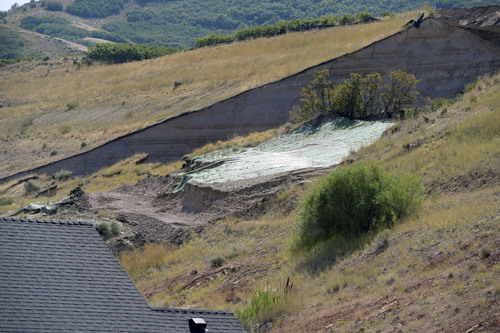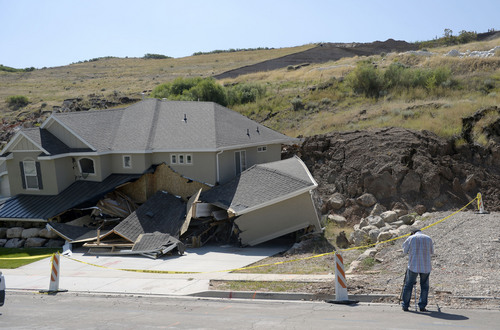This is an archived article that was published on sltrib.com in 2014, and information in the article may be outdated. It is provided only for personal research purposes and may not be reprinted.
Homeowners insurance tends to exclude landslides, but people can still find coverage.
The typical homeowner policy doesn't cover landslides because carriers don't want that kind of exposure, said Eric Kingdon, a board member of the Utah Association of Independent Insurance Agents and an independent agent himself. And while it varies company to company, underwriters might deny people such coverage because of their proximity to a steep slope, or based on soil studies that show the earth is soft, he added.
With those caveats, however, the insurance can be "readily available and not terribly expensive," according to Pete White, owner of the independent insurer Utah Agency.
Landslide insurance, generally speaking, is available a couple ways: the most common way would be through earthquake insurance — though homeowners should be careful to check whether landslides are excluded, Kingdon said.
"If somebody lives in a situation similar to what we've seen in the news, people are more mindful of [getting insured]," Kingdon said, though anecdotally speaking, not as many people along the Wasatch Front buy earthquake insurance as one might think.
"People tend to live with some blinders on and think that it's not going to happen," he said.
The second way is through a "difference in conditions" policy, or DIC, which cover earthquakes, landslides and floods. However, those tend to be more expensive, Kingdon said.
For instance, coverage for a $200,000 house through earthquake insurance would cost about $400 a year, with a 10 percent deductible. The same home, through a DIC, would cost about $700 a year, though that choice's deductibles tend to be a little less, Kingdon said.
As far as proving the claim, landslides are pretty cut and dry, Kingdon said.
But again, some insurance companies are starting to exclude landslides from their earthquake coverage, so consumers should "be very careful… and make sure to do their due diligence," Kingdon said.
Twitter: @mikeypanda







